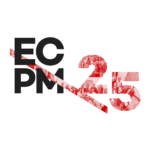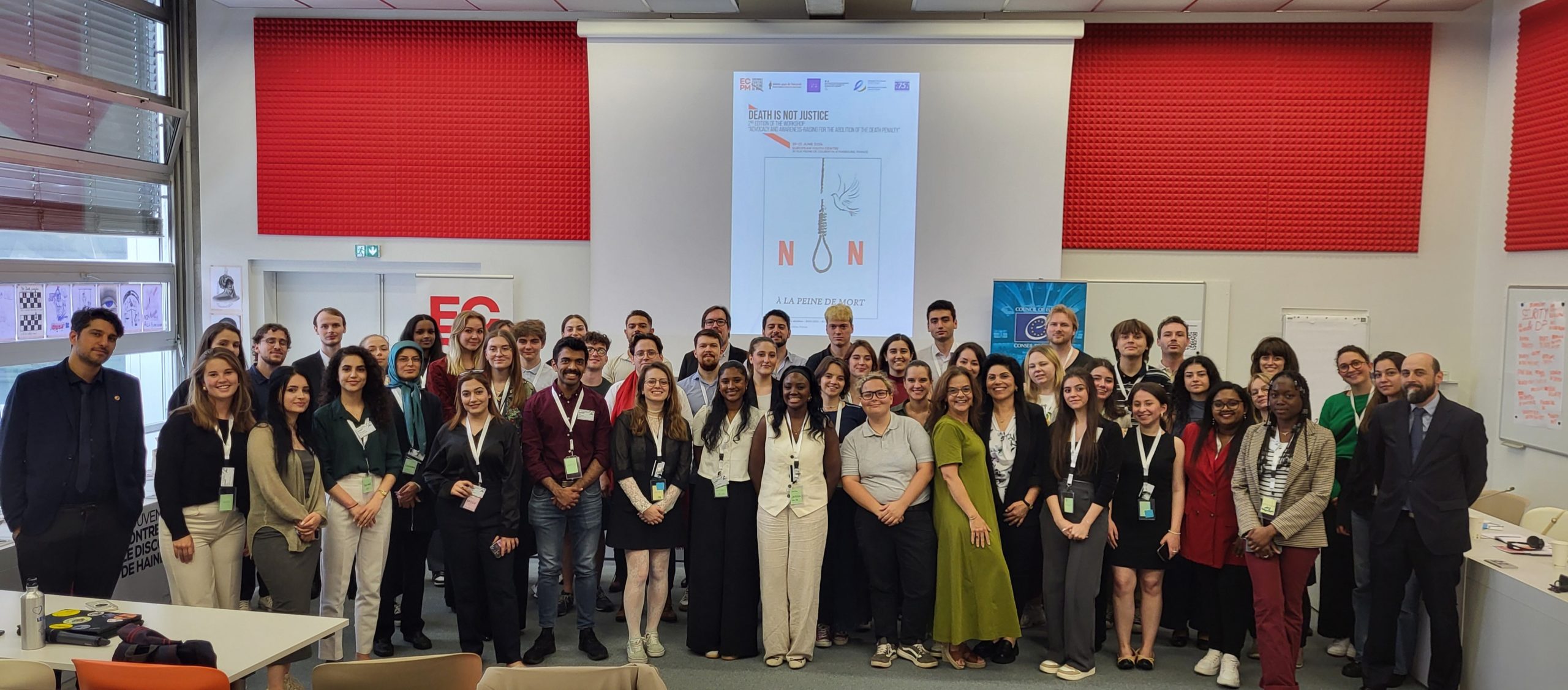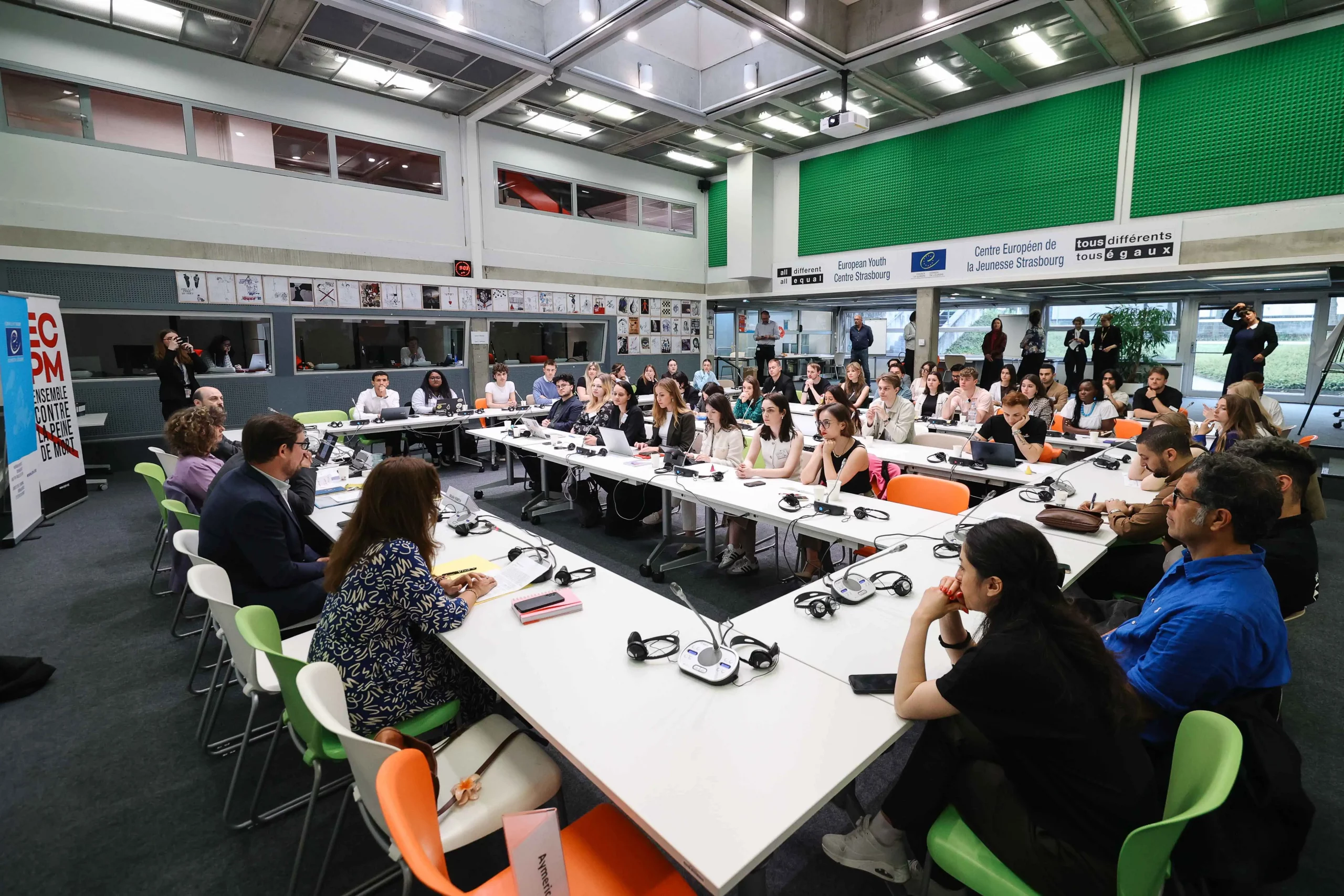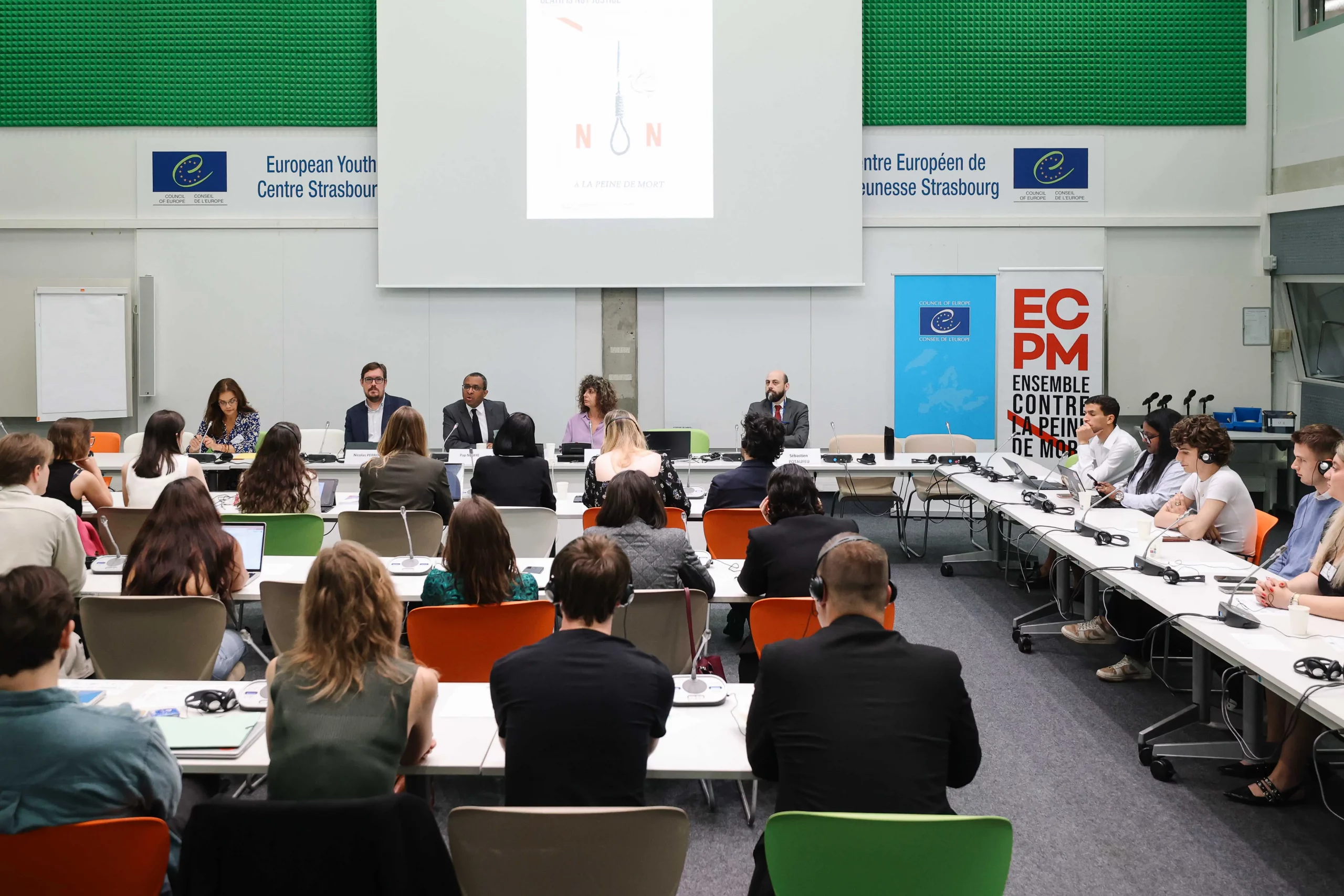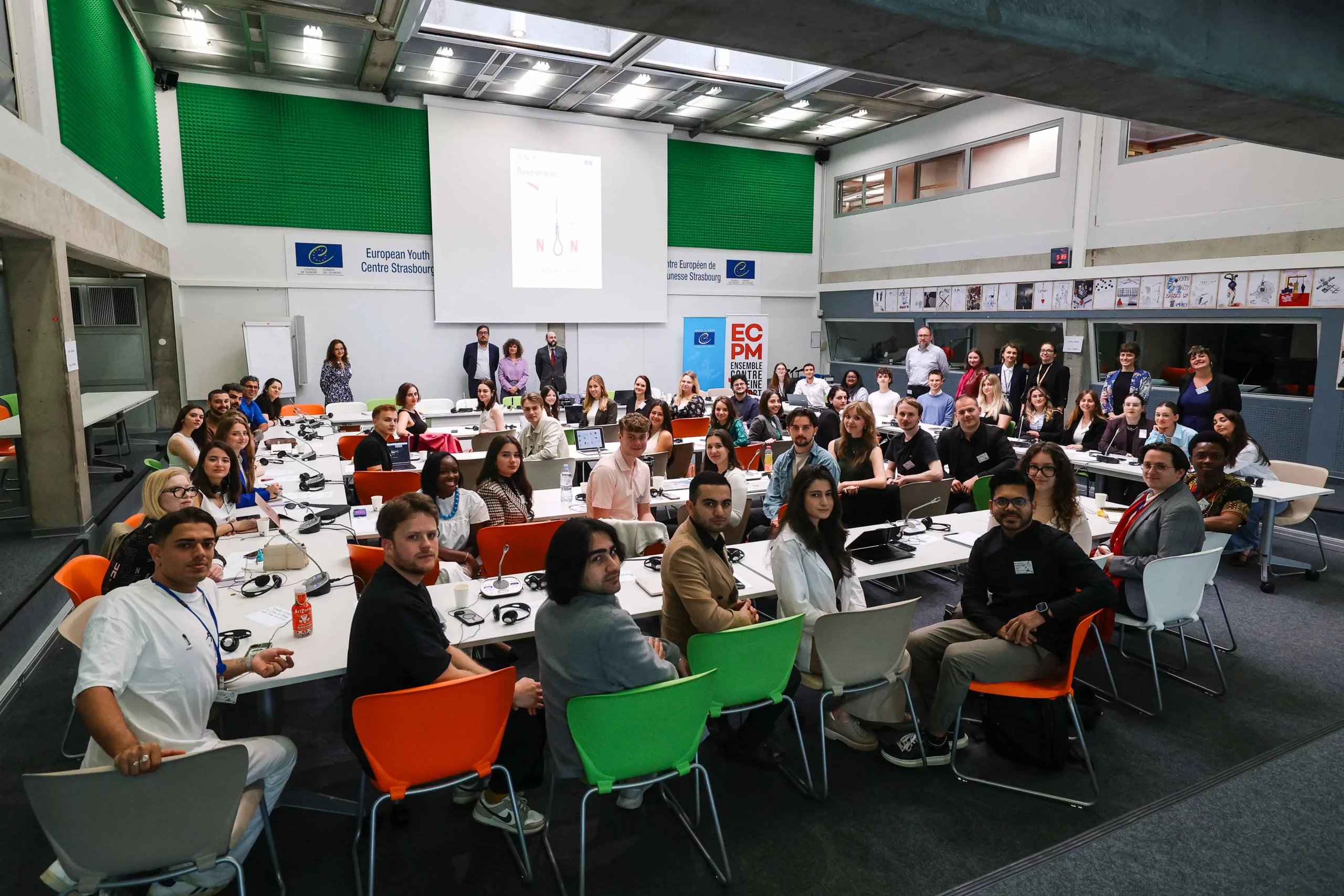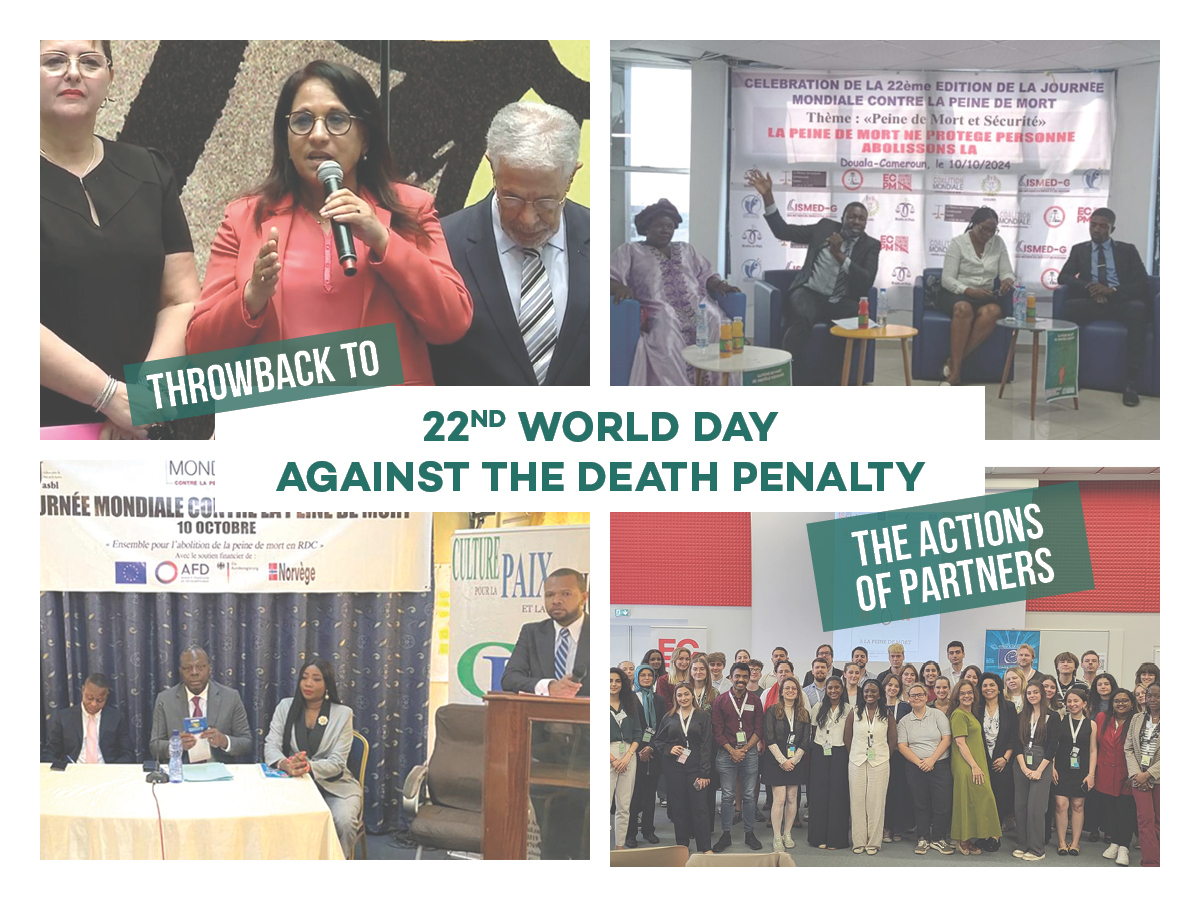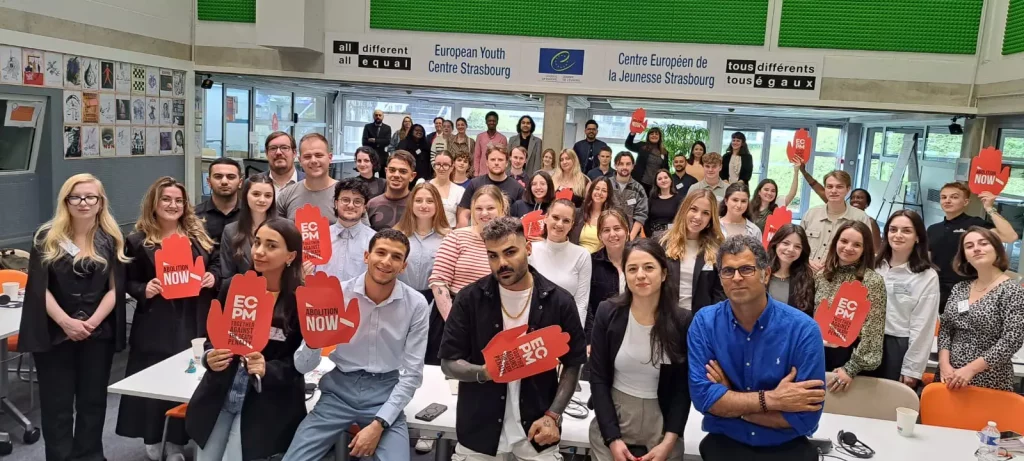
The youth commitment : a third of participants had already attended the previous workshops

June 2025 · © Photo credits : Margaux Supper and Mirdass Abdesslam, Council of Europe
This year, 17 of the 47 young people present in Strasbourg had already taken part in previous editions, demonstrating their lasting commitment to abolishing the death penalty. Their experience helped to strengthen the group’s cohesion, autonomy and ability to build realistic, concrete and collective projects. During this third edition, this empowerment was further strengthened by the introduction of more group work and the deployment of internal and external digital communication resources, among other things.
In addition, a number of innovations this year added to the workshop’s methodological input, especially the case study session on “How to implement a film debate”. The screening of the short film Will my parents come to see me by Mo Harawe (2022) was followed by group work. The aim was to put the participants in a practical situation and develop a toolbox that they could then implement independently.
Iran : the moving testimony of Saman Yasin
Saman Yasin is a rapper and composer who was sentenced to death in Iran in 2022, due to his politically engaged songs opposing the Iranian regime. While in detention, he was subjected to torture, including the traumatic simulation of his own execution, which left him with severe physical and psychological traumas. Since 2025, he has been living in Germany, where he has been granted the status of opponent in exile. When he came to Strasbourg, he was speaking in public for the second time, and for the very first time in front of a group of young people. His testimony, which was particularly moving, revealed the inhumane conditions of detention to which he was subjected, the use of torture and the painful consequences of these two years on him and his family. During his testimony on 18 March, at the ‘Seeking Justice’ side event organised by KMMK (Kurdistan Human Rights Association) at the 58th session of the Human Rights Council in Geneva, he said :
The least I could do was to amplify the voices of the oppressed, which I did through my protest songs. Yes, that was my only crime — the reason they called me a rioter, a rebel, an enemy of God, and dragged me to prison. They beat me, broke my nose, and subjected me to a mock execution, all because I wanted the world to hear this suffering.
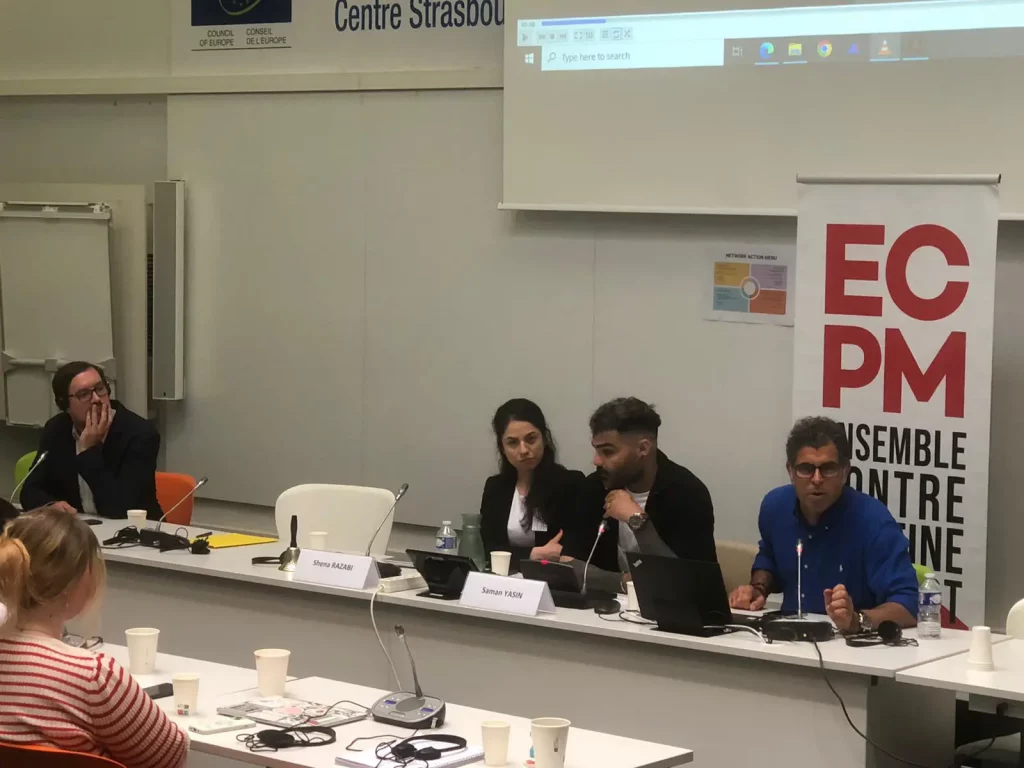
The emotion was felt throughout the room : the speakers, interpreters and participants were deeply moved. The young people, visibly affected, wanted to know more about his story, asking a number of questions with great attention and interest. In particular, they asked about the scope for action by young people in support of human rights defenders :
‘What message do you want young people to remember and pass on ? ’
The activities implemented during the workshop
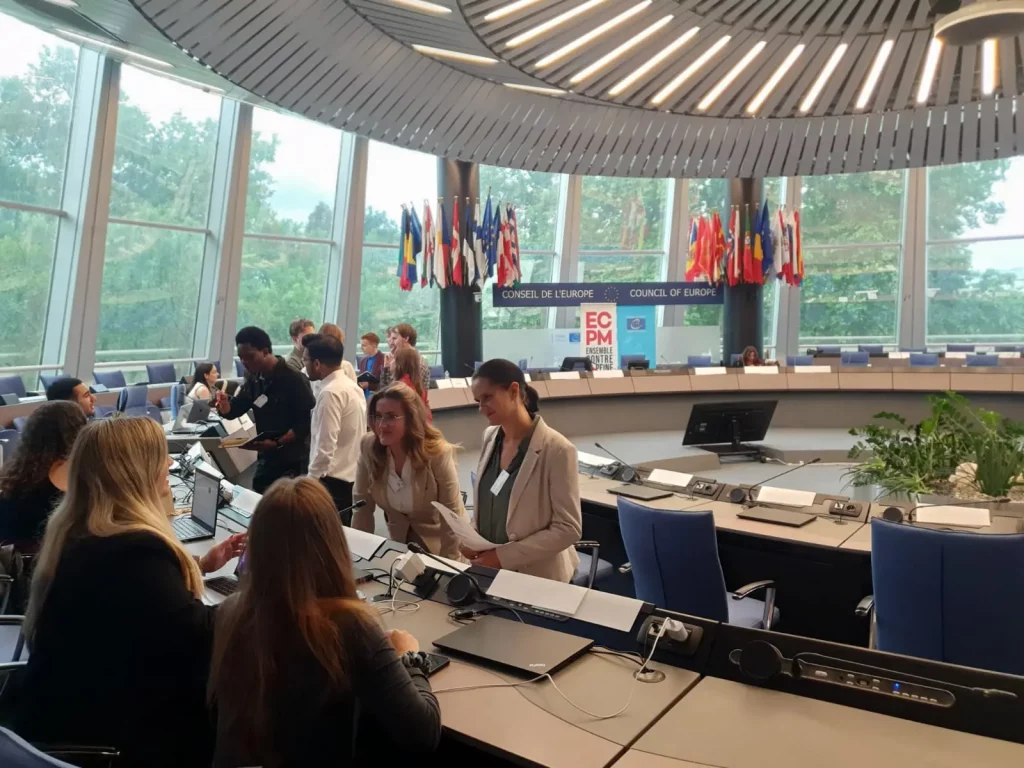
In addition to the testimonies and sessions, the young people were offered a wide range of activities to strengthen their capacity for action. The aim was to empower this network of ambassadors as much as possible, so that they could build their own toolbox and create their own projects in group work, in order to continue their commitment in their respective countries and communi The presence of former participants was precious in sharing the initiatives already put in place in previous years, disseminating good practice and explaining the difficulties they have encountered.
As every year, a role play was organised to simulate the vote of the United Nations resolution calling for a universal moratorium on the use of the death penalty. A new feature of this year’s event was that the old participants took on the role of NGOs, while the new ones took on the role of government representatives. Together, they debated and voted on a resolution in favour of a universal moratorium on the death penalty, a first since the creation of the role play. This simulation gave the young people a better understanding of how international relations work, the role of each of the players involved – NGOs, states and institutions – and how a vote at the United Nations General Assembly works.
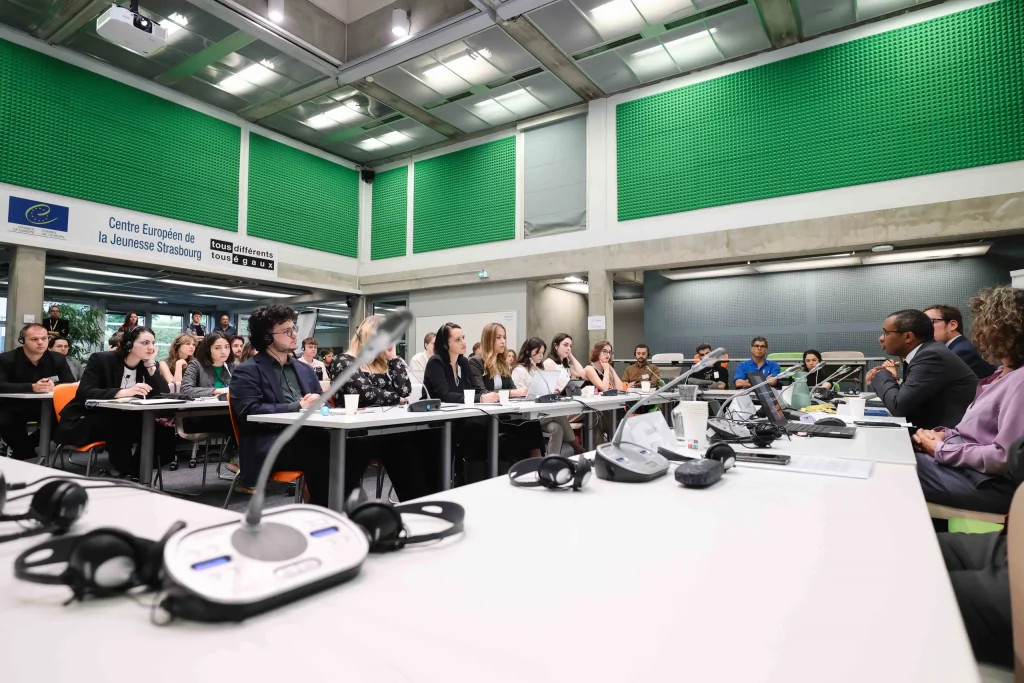
To strengthen the Young Ambassadors network
One of the highlights of the week was an evening at the Permanent Representation of France to the Council of Europe, which enabled to strengthen the links between committed young people and institutional stakeholders. The official reception was attended by Pap Ndiaye, Ambassador and Permanent Representative of France to the Council of Europe since 1 August 2023.
This event also brought together representatives of several national delegations from participants’ countries of origin. The evening provided an opportunity for direct dialogue with institutional leaders, including Sébastien Potaufeu, Senior Human Rights Advisor and Coordinator for the Abolition of the Death Penalty at the Council of Europe, reinforcing the scope and visibility of the Young Ambassadors network.
These privileged exchanges contribute fully to the strengthening of a network of committed young Europeans, in line with the implementation of the declaration of the 2023 Reykjavik Summit, where the Heads of State and Government indicated that the Council of Europe should continue its fight for the abolition of the death penalty.
A generation commited to take action
This third edition of the ‘Advocacy and awareness-raising’ workshop confirmed the strength of young people’s commitment to abolishing the death penalty. Between powerful testimonies and moments of collective reflection, the participants left enriched, with a committed voice, concrete tools to continue to act and several collective projects to set up in the coming months. In the face of injustice, a new generation is rising up, united by a common conviction : the death penalty is not a solution, but rather a betrayal of the very essence of justice.
